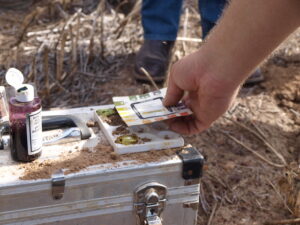
Doctor is vaccinating women with antibiotics or new antibodies to prevent the spread of the virus, Vaccination against communicable diseases concept
An unusual surge in cases of a severe strain of influenza, primarily affecting the elderly, has prompted health officials in Western Australia (WA) to issue vaccine warnings. Cases of the A H3N2 subtype of influenza A have risen significantly over the past two weeks, coinciding with concerns about mutations of the virus leading to a potentially severe flu season in the northern hemisphere.
Recent data indicates that influenza notifications in WA jumped to 661 cases in the week ending November 2, 2023, following a peak of 1,704 cases on September 7. This rise comes during a period when health experts are advocating for increased vaccination, particularly among residents planning to travel to regions where the flu is more prevalent.
According to WA Health, the current spike is largely attributed to the A H3N2 strain, which has been more common among older adults. The health department noted that two-thirds of local cases have occurred in this demographic. Despite a record 32,560 flu cases reported in WA this year—well above the five-year average of 13,935—only about one in four individuals in the region has received the flu vaccine.
Health Experts Highlight Vaccine Importance
Professor Asha Bowen, a clinician and researcher at Perth Children’s Hospital, pointed out that the emergence of the A H3N2 strain late in the flu season is unusual. “Every year we have these two competing types of influenza A, and usually we see the same virus throughout the season,” she explained. “This is a slightly different trend. We don’t know if it will have an impact on the WA population, but many people travel to the northern hemisphere for the winter season, so we continually encourage those traveling to consider getting the flu vaccine.”
The need for heightened awareness regarding vaccination is underscored by Professor Jaya Dantas from Curtin University. She noted that mutations of the A H3N2 strain detected in the UK are raising alarm, as they may evade existing immunity. While the exact status of these mutations in Australia remains uncertain, the increase in local cases could be linked to international travel and WA’s wet and cool spring.
WA Health officials stated that influenza levels in the state are currently “well above typical levels for this time of the year.” A spokesperson confirmed that the A H3 subtype is primarily affecting older adults, reiterating the importance of vaccination in mitigating severe outcomes.
Call for Enhanced Vaccination Campaigns
In light of the ongoing situation, health experts are advocating for a robust public awareness campaign to improve vaccination rates. Currently, WA is below the national average in vaccination coverage for all age groups, except for children aged five to 15 years.
Professor Dantas emphasized the necessity of accurate messaging to inform the public about the benefits of flu vaccination. “The vaccine does prevent the severity, but we need to increase vaccination rates with evidence-based information, especially from March onwards,” she said. “It’s about reaching parents and allowing them to make informed choices about vaccinating their children.”
As the flu season continues, officials urge residents to consider vaccination not only for themselves but also to protect vulnerable populations in the community. The increase in hospitalisations, which nearly doubled the average at 4,532 patients this year, further illustrates the pressing need for continued health vigilance.






